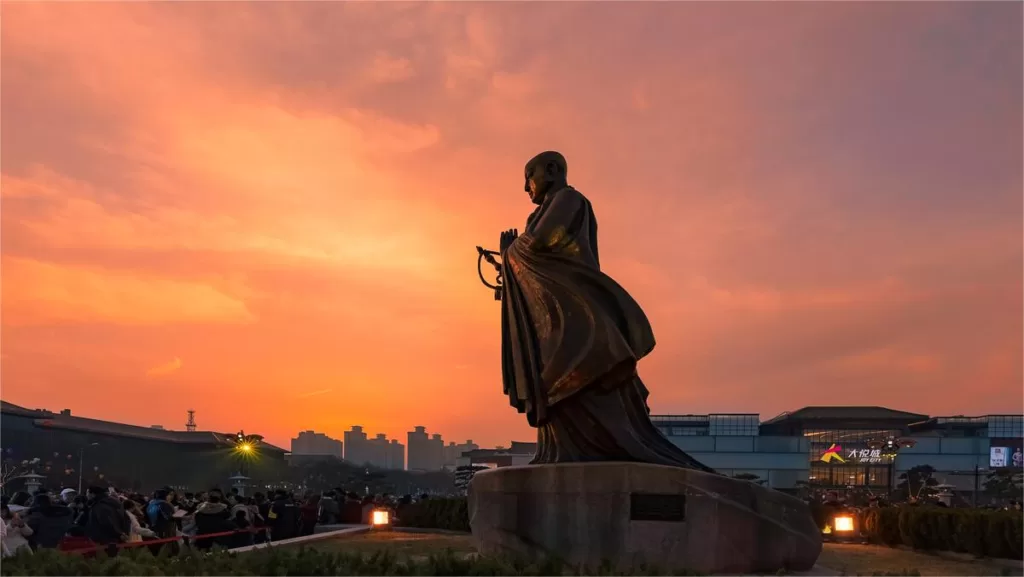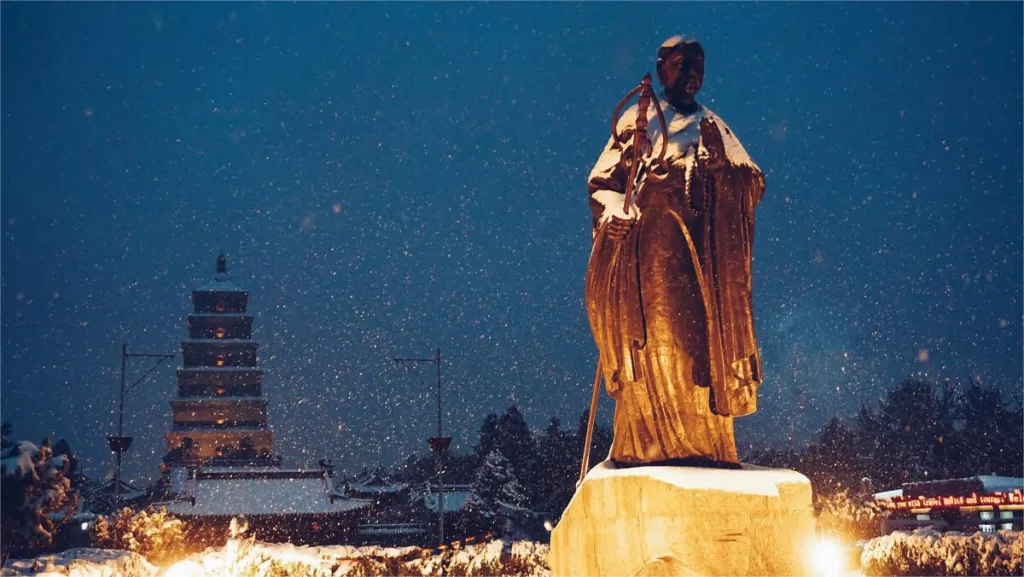Xuanzang, also known as Tripitaka or Hsuan Tsang, was a Chinese Buddhist monk who embarked on a remarkable journey to India in the 7th century. He traveled through treacherous terrains and encountered numerous challenges in his quest to acquire Buddhist scriptures and deepen his understanding of Buddhism. Xuanzang’s visit to India was filled with surprises and impressive discoveries that greatly influenced his perception of the country and its culture.
Intellectual Brilliance: Xuanzang was amazed by the intellectual prowess of Indian scholars and the advanced state of education in ancient India. He was impressed by the vast knowledge and deep understanding of Buddhist philosophy exhibited by Indian scholars. Xuanzang witnessed debates and discussions among the scholars, and their erudition left a lasting impact on him.
Buddhist Institutions: Xuanzang encountered numerous Buddhist institutions during his travels in India. He was surprised by the sheer number and scale of these establishments, which included monasteries, universities, and libraries. These institutions served as centers of learning, attracting scholars from various regions. The organized and well-structured nature of these establishments impressed Xuanzang greatly.
Diversity of Buddhism: Xuanzang discovered the rich diversity within Buddhism during his stay in India. He encountered different Buddhist sects, each with its own unique doctrines and practices. This diversity challenged his preconceived notions about Buddhism, broadening his understanding of the religion and its adaptability to different cultural contexts.
Art and Architecture: Xuanzang was captivated by the artistic and architectural achievements he witnessed in India. He marveled at the intricately carved sculptures, exquisite paintings, and magnificent temples dedicated to Buddhism. The Ajanta and Ellora Caves, in particular, left an indelible impression on him, showcasing the remarkable artistic skills of ancient Indian craftsmen.
Sacred Sites: Xuanzang visited several sacred sites associated with Buddhism, such as Bodh Gaya, where Gautama Buddha attained enlightenment, and Sarnath, where the Buddha delivered his first sermon. These visits were profound and awe-inspiring for Xuanzang, as he walked in the footsteps of the Buddha and felt a deep spiritual connection to these revered places.
The Rigorous Ascetic Practices: Xuanzang was astonished by the extreme ascetic practices undertaken by some Indian monks. He witnessed monks who practiced severe self-mortification, enduring physical hardships in their pursuit of spiritual liberation. This contrasted with the milder practices he was accustomed to in China, and it made him appreciate the diverse approaches to spiritual cultivation.
Language and Literature: Xuanzang was particularly impressed by the depth and richness of Indian languages and literature. He studied Sanskrit and mastered various Buddhist texts written in this language. The vastness of Indian literary traditions, including epics like the Mahabharata and the Ramayana, fascinated Xuanzang, and he made efforts to translate and preserve these texts.
Natural Beauty: As Xuanzang traveled across India, he encountered its diverse and breathtaking landscapes. He was struck by the natural beauty of the country, from the snow-capped mountains in the north to the lush green forests and rivers in the south. These scenic marvels further enriched his experience and deepened his appreciation for the land he was traversing.
Overall, Xuanzang’s visit to India was a transformative journey that not only allowed him to obtain Buddhist scriptures but also exposed him to the intellectual, cultural, and spiritual riches of the country. His encounters with various facets of Indian civilization left an indelible impact on him, shaping his own understanding of Buddhism and inspiring generations of scholars who followed in his footsteps.
Facts about Xuanzang




